PRM software solves inconsistency by unifying all scattered training systems, technical documents, and sales materials onto one core platform. This ensures partners selling complex products, like industrial IoT or automation machines, have immediate access to up-to-date and compliant information.
Best Practices Articles

A Modern Enablement System Starts with PRM Software for Manufacturing
PRM Software for manufacturing is a unified digital platform that centralizes partner enablement, integrating learning, content, and deal registration workflows. It is essential because it directly connects a partner's certified knowledge to measurable performance, ensuring consistent technical competency across a global network. This strategic investment is the key to accelerating the overall time-to-revenue and achieving channel optimization.
- Who is this for?: Manufacturing organizations with global channel networks, Chief Partner Officers, Channel Sales Managers, and Partner Operations (PartnerOps) teams.
- Core Problem Solved: Fragmented partner training systems where the Learning Management System (LMS) is disconnected from the sales data and financial incentive structures.
- Key Tech/Entities: Unified Partner Management platforms, Deal Registration, and Financial Incentives (Commissions/Rebates).
A modern enablement stack in manufacturing requires moving past fragmented, siloed training systems. PRM software for manufacturing acts as a unified core platform, integrating learning, content, and deal registration to automate certification, personalize training, and link knowledge directly to financial incentives. This strategic investment provides the granular analytics needed to prove the ROI of training, ensure consistent partner competency, and accelerate global revenue growth.
Key Takeaways
- PRM software for manufacturing unifies fragmented training systems.
- It links partner knowledge directly to sales data and financial incentives.
- The unified platform provides the analytics to measure training ROI.
In the challenging, highly technical world of manufacturing, what your partners know is your most important competitive advantage. Your innovative product is only as good as the knowledge of the distributor, dealer, or reseller who sells it to the final customer. Because of this, training, certifying, and equipping your channel partners—a process called partner enablement—is absolutely essential to your business.
However, many manufacturers with global networks struggle with a disorganized training system. This system is often a jumble of separate tools: one for certifications (an LMS), another for sales documents, and a third for communication (manual emails). This fragmented approach leads to partners having inconsistent skills, slow product launches, and huge amounts of administrative work for internal teams. The inability to consistently share knowledge is the biggest barrier to earning more channel revenue.
To solve this constant problem, manufacturers need to fully transform their enablement strategy. The solution isn't to add more separate tools, but to bring the entire process together onto a single, unified platform. A modern enablement system begins and is built around PRM software for manufacturing. This software acts as the central hub for partner competence, efficiency, and growth. This focused investment is the key to consistent partner training, accelerating the time it takes to generate revenue, and achieving measurable channel optimization.
The Critical Need: Why Knowledge Must Be Scalable
Enablement in manufacturing is uniquely complex because of the technical nature of the products and the difficulty of managing the global channel. When you fail to scale knowledge effectively, the costs hurt every part of the business.
The Cost of Complexity
Unlike simple B2B sales, selling manufacturing solutions—like industrial IoT, automation machines, or special components—requires deep, specific technical knowledge. Partners must be trained not just on sales tactics, but also on how to set up, install, maintain, and comply with standards. This means managing a huge amount of technical documents and certification rules for thousands of partners worldwide. When these resources and courses are in separate places, it becomes impossible for people to keep thousands of partner reps consistently updated.
The Problem with Separate Systems
The old enablement system is full of isolated programs.
- Learning is disconnected from Selling: The certification system (LMS) is separate from the deal registration system. Channel managers might see a partner is certified, but they can't see if that knowledge actually leads to a higher rate of winning deals or larger deal sizes. Without connecting this data, the real value of training is just guesswork.
- Inconsistent Partner Experience: Partners have to use multiple passwords and struggle to find the right materials. A new sales presentation might be in one place, but the pricing tool is in another. This extra effort hurts efficiency and leads to low partner engagement.
- Administrative Waste: Internal teams spend too much time chasing certification statuses, manually updating access rights, and gathering reports from different systems. This low-value administrative work prevents channel optimization.
The most serious result of fragmented training is that partners have inconsistent skills. This inconsistency creates severe brand risk. An under-trained partner might incorrectly quote a complex solution or provide poor post-sales support, damaging the manufacturer's reputation and causing customer dissatisfaction. A unified, automated system is necessary to ensure the standardization of processes across thousands of partners.
Pillar 1: A Single Hub for Learning and Content
The first step to building a modern enablement system is combining all the separate parts. A unified PRM software for manufacturing must include a built-in, integrated Learning Management System (LMS) and centralized sales enablement tools.
Ending the Silo Effect
The strength of a unified platform is its seamless integration. The LMS, asset library, deal registration, and incentive management all exist in one environment. This allows for:
- Contextual Learning: Training modules can be automatically sent to a partner based on what they are currently doing. For example, a technical manual appears when they register a deal for that specific product.
- Single Source of Truth: All technical details, sales battlecards, and branding rules are in one secure, controlled library. When an asset is updated centrally, every partner worldwide instantly sees the current version, avoiding the risk of using old materials.
- Better Partner Experience: The partner logs into one dashboard and instantly gets everything they need for their job, specific to their role. This reduces friction and encourages adoption.
Personalized, Role-Based Training
In a global channel, one-size-fits-all training is inefficient. A unified platform uses dynamic segmentation to create a highly personalized experience. The PRM software for manufacturing automatically customizes what the partner sees based on their profile:
- By Role: A Sales Manager automatically gets training on pricing and competitive analysis. A Field Service Technician gets a completely different path focusing on installation and troubleshooting.
- By Status: A new Authorized partner receives basic product training. A Platinum partner receives advanced, exclusive strategic guides.
- By Region: The system ensures that all necessary regulatory training (like EU compliance modules) is mandatory only for partners in those specific regions.
This strategic customization drives channel optimization by ensuring partners spend their training time on the most relevant, high-impact knowledge.
Pillar 2: Automated Certification and Readiness
The next essential step is automating the entire process to ensure consistency, speed, and administrative efficiency. This is where the platform's workflow and configuration tools become critical.
Automated Workflows
The platform offers end-to-end automation for key partner processes.
- Accelerating Time-to-Revenue (TTR): The system instantly enrolls a new partner user into the correct, tailored learning path right after their profile is created, removing manual assignment steps. This speed is vital for growth acceleration.
- Structured Progression: Certification tracks are structured as automated gates. A partner cannot get advanced sales battlecards until they have passed the foundational product knowledge test. This sequencing builds competency logically.
- Automatic Rewards: The system can be set up to automatically unlock benefits the moment a partner completes a crucial certification. For example, granting a higher discount margin on deals involving the newly certified product.
Program Management Agility
The fast pace of product innovation in manufacturing requires the channel program to be equally flexible. Launching a new certification program should be easy. A key feature of a modern solution is Ease of Use (No-Code/Low-Code). This feature gives non-technical channel managers the ability to design and adapt new certification requirements or incentives quickly. This allows the enablement strategy to keep pace with the product roadmap, making the program more adaptable and providing strategic agility.
Linking Training to Profit
Profit is the ultimate motivation for a partner. A unified platform links certification directly to financial incentives. For example, a manufacturer can use the system to only pay a higher commission rate on a registered deal if the sales rep working on it holds the specific technical certification required for that product. This automated linkage ensures that incentives perfectly align with strategic enablement goals. The continued development of the PRM software for manufacturing will further enhance this financial alignment.
Pillar 3: Analytics for Measurable Results
The final and most important pillar is the platform's ability to definitively prove the Return on Investment (ROI) of training and drive continuous improvement. This requires Granular Analytics & Business Intelligence built on a single set of data.
Closing the Data Loop
With separate systems, proving the value of training is difficult. The unified platform fixes this by connecting all the data. Because training data (LMS) and sales data (Deal Registration) are in the same system, the manufacturer can run reports that answer high-level executive questions:
- "What is the average sales cycle for partners who finished the 'Advanced Configuration' certification versus those who did not?"
- "What is the average deal size for fully certified partners on our new product line?"
- "Did the new technical recertification program lead to a measurable drop in post-sales support tickets?"
This integrated reporting gives deep reporting on revenue impact and crucial visibility into partner performance.
Tracking Early Warning Signs
The analytics module allows channel managers to look beyond just revenue (a lagging indicator) and track leading indicators of success.
- Proactive Coaching: The system can alert managers when a partner's certification rates have dropped or when a technical rep is failing a key test. This allows the Channel Account Manager (CAM) to intervene with targeted support before the issue affects sales.
- Continuous Improvement: Data on partner engagement, course dropout rates, and assessment failures allows the training team to constantly improve the content. This continuous, data-driven feedback loop is the ultimate form of channel optimization. The ability of PRM software for manufacturing to combine this data is essential for ongoing success.
Conclusion: Securing Competency and Accelerating Growth
The complexity of modern manufacturing requires an equally sophisticated approach to partner training. Relying on fragmented, isolated systems for training and content is a mistake that causes inconsistent skills, operational chaos, and lost revenue.
A modern enablement system must be unified, automated, and deeply integrated into the entire partner lifecycle. A unified PRM software for manufacturing provides the necessary foundation for this digital transformation. By combining separate systems, automating certification, personalizing training, and providing the Granular Analytics to prove ROI, it ensures every partner is fully competent and empowered to accelerate the manufacturer's global growth. This strategic investment in PRM software for manufacturing is the key to securing the knowledge advantage needed to succeed in a competitive market.
Is your partner enablement a fragmented mess or a strategic growth engine? Discover how a Unified Partner Management platform can transform your enablement stack to drive consistent competency, accelerate time-to-revenue, and provide the measurable ROI that executives demand. Schedule a demo today to see integrated enablement in action. The best choice for growth is a unified PRM software for manufacturing.
Frequently Asked Questions
Integrating the LMS with the deal registration system allows organizations to move past guesswork by linking partner knowledge directly to financial outcomes. This provides the granular analytics necessary to prove the ROI of training, showing if partner certification successfully leads to a higher rate of winning deals.
Fragmented systems create significant administrative waste because internal teams spend excessive time manually updating access rights, managing disparate content, and chasing certification statuses across multiple siloed platforms. This low-value effort prevents teams from focusing on strategic channel optimization.
It accelerates growth by standardizing and automating the entire partner lifecycle, from onboarding to incentivizing. This structure links certified competency directly to sales tools, streamlines deal registration, and manages the calculation of financial incentives, significantly reducing the time-to-revenue for new product launches.
Best Practices Guides
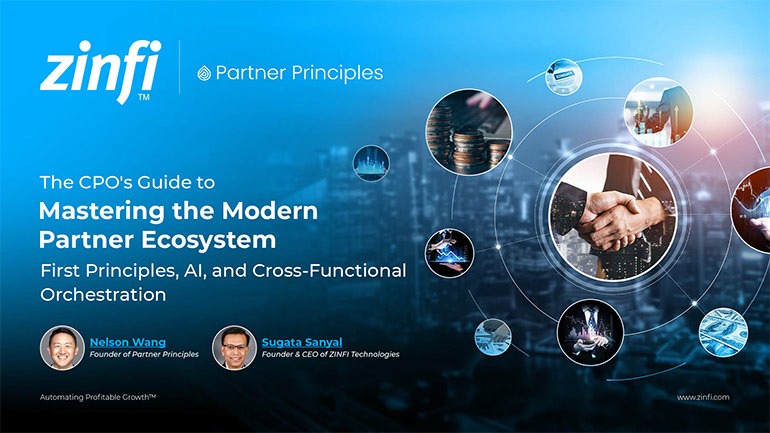 First Principles Drive Modern Partner Ecosystem Success Best Practices
First Principles Drive Modern Partner Ecosystem Success Best PracticesDownload for FREE
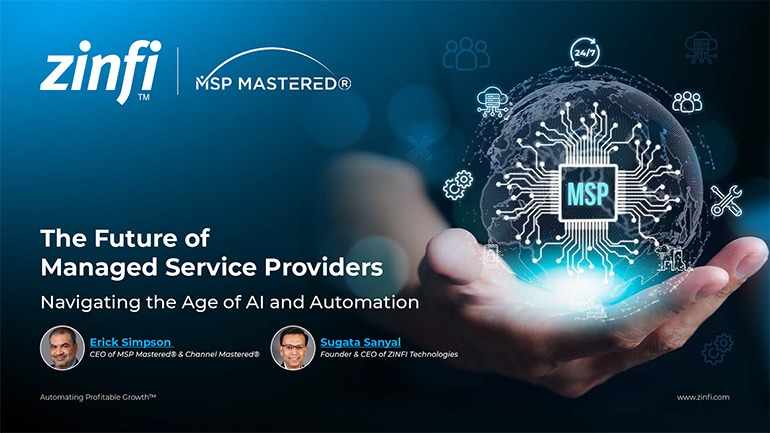 The Future of Managed Service Providers: Navigating the Age of AI and Automation
The Future of Managed Service Providers: Navigating the Age of AI and AutomationDownload for FREE
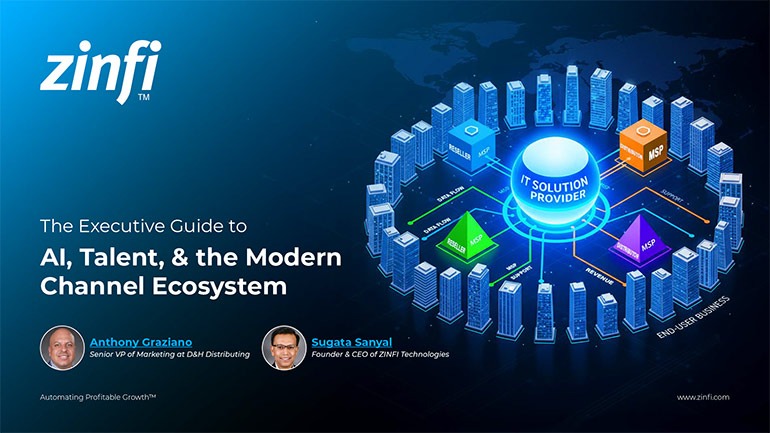 Modernizing Channel Marketing: AI and Ecosystem Enablement Best Practices
Modernizing Channel Marketing: AI and Ecosystem Enablement Best PracticesDownload for FREE
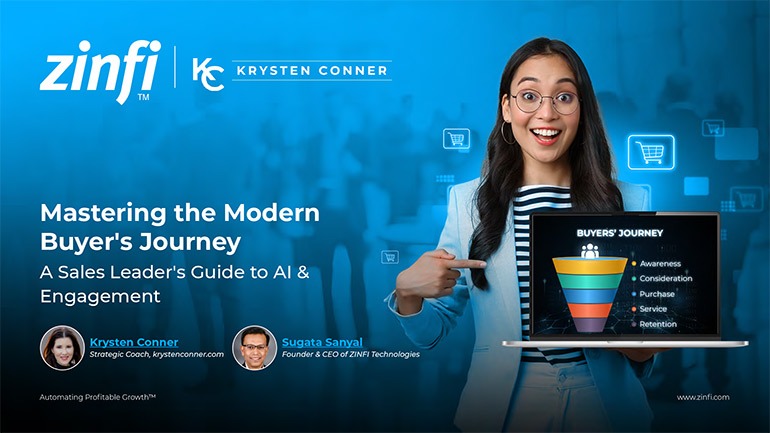 The Channel’s Shift to Partner-Led With AI Best Practices
The Channel’s Shift to Partner-Led With AI Best PracticesDownload for FREE
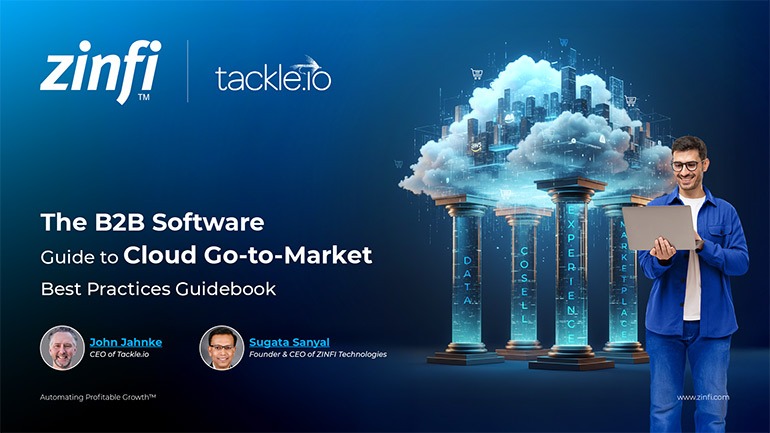 Hyperscalers, ISVs, and AI: Shaping the Future of B2B Software Distribution
Hyperscalers, ISVs, and AI: Shaping the Future of B2B Software DistributionDownload for FREE
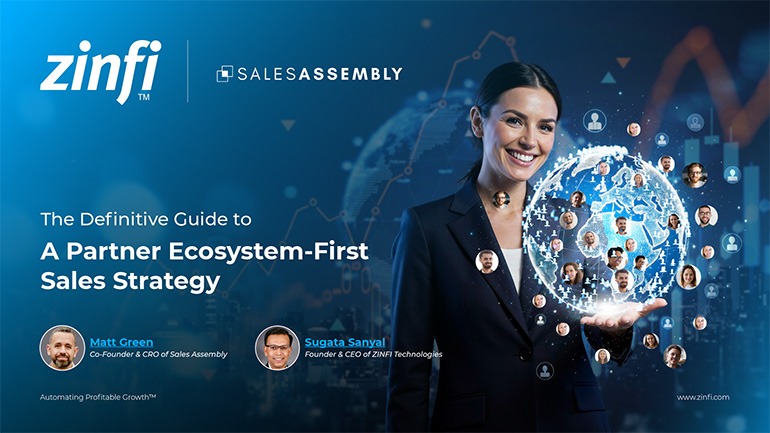 Definitive Guide to a Partner Ecosystem-First Sales Strategy
Definitive Guide to a Partner Ecosystem-First Sales StrategyDownload for FREE
 The Partner-Led Digital and AI Transformation Best Practices
The Partner-Led Digital and AI Transformation Best PracticesDownload for FREE
 Startup Talent Recruitment: Hiring Missionaries, Not Mercenaries
Startup Talent Recruitment: Hiring Missionaries, Not MercenariesDownload for FREE
 The Future of Partner Relationship Management with AI in Partnerships
The Future of Partner Relationship Management with AI in PartnershipsDownload for FREE
 Cybersecurity for the 99%: Strategies from the Frontline
Cybersecurity for the 99%: Strategies from the FrontlineDownload for FREE
 Mastering Partner Relationships: A Strategic Approach to Business Growth
Mastering Partner Relationships: A Strategic Approach to Business GrowthDownload for FREE
 Mastering Partner Relationship Management: Keys to SaaS Channel Success
Mastering Partner Relationship Management: Keys to SaaS Channel SuccessDownload for FREE